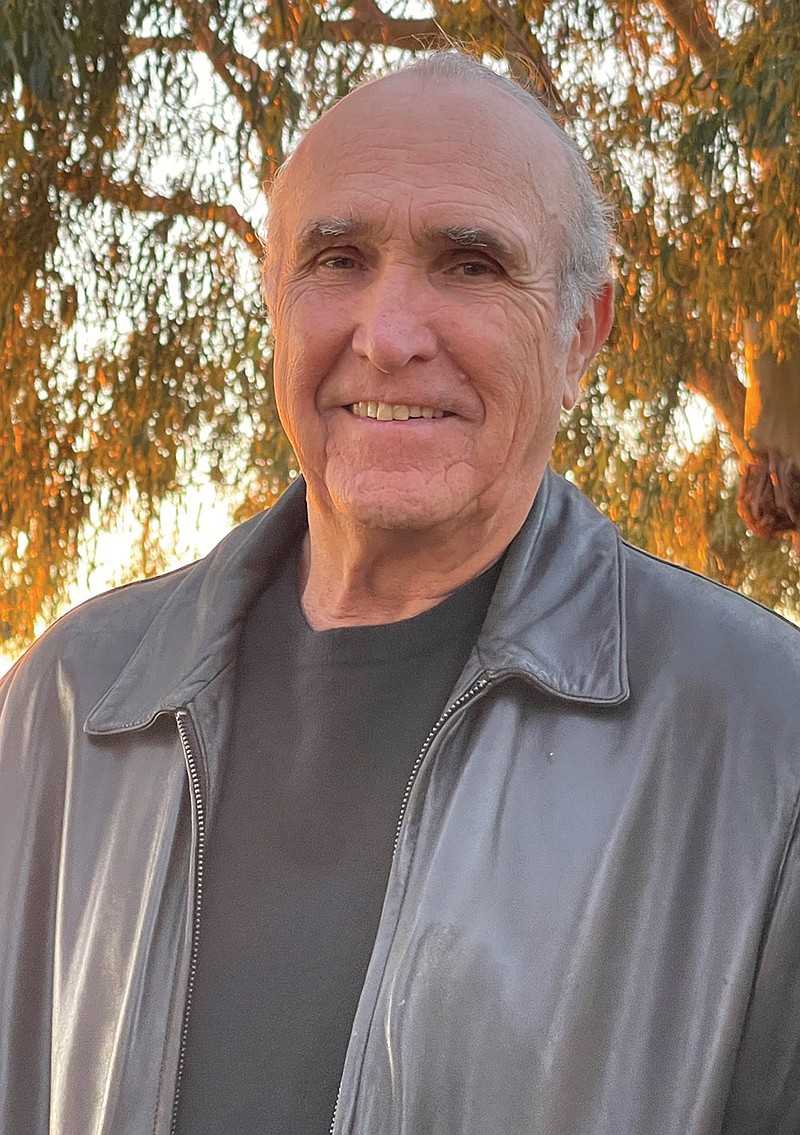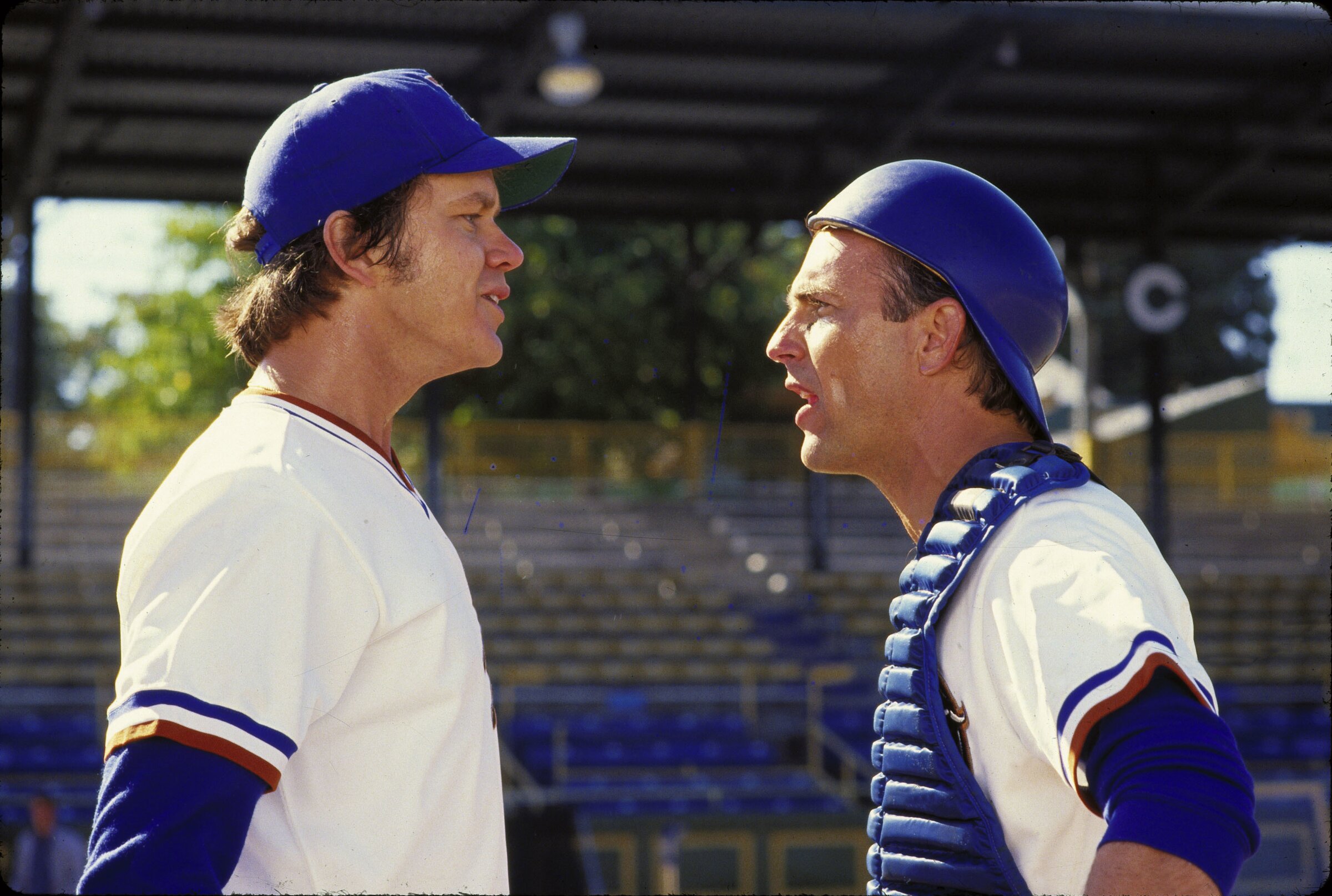Ron Shelton's "Bull Durham" and "White Men Can't Jump" are a couple of the rare movies people who have actually raised a bat or taken a jump shot for a living can watch without rolling their eyes.
As he recounts in his new book "The Church of Baseball: The Making of Bull Durham: Home Runs, Bad Calls, Crazy Fights, Big Swings, and a Hit" (Knopf, $30) sitting through movies like "Pride of the Yankees" was a chore for him. From 1967 to 1971, Shelton played second base and shortstop for the Stockton Ports in A baseball, the AAA team the Rochester (New York) Redwings (where he made the team's Hall of Fame) and the AA team the Dallas-Fort Worth Spurs. ("The Church of Baseball" also recounts how a rainout in Little Rock became his "Road to Damascus" moment in his filmmaking career and informed a major scene in "Bull Durham.")
THE REAL DIRT
Asked if he got into filmmaking because of the way basketball and baseball were depicted on screen were so horribly inaccurate (try, just try watching Anthony Perkins throw a baseball in "Fear Strikes Out"), Shelton laughs.
"I did a (TV) pilot that didn't get picked up, set in AAA Nashville a few years ago. And I just put a ball on the table and a bat in the corner. I didn't say anything about them, and the ballplayers walked in, and he couldn't not grab the baseball and start holding it or picking up the bat. The non-athletes were afraid of them. It was obvious."
The supporting casts in his films often feature moonlighting players to make the background action look less phony, and there are actors like "Bull Durham" star Kevin Costner, Wesley Snipes, Kurt Russell and Woody Harrelson who can play as well as nail their (sometimes detailed) lines.
In "White Men Can't Jump," Australian cinematographer Russell Boyd ("Master and Commander: The Far Side of the World") shoots Harrelson and Snipes from wide angles demonstrating that they really are sinking those jumpers.
"It was key to establish that every time the ball left their hand in the movie that the audience could accept that they could play and this isn't Hollywood tricks. Once that is established, you can edit however you want. Later in the movie, Wesley makes a wild drive. The ball goes under his leg and behind his leg, and it's all in one shot," Shelton explains.
"It's pretty critical to a sports movie to get that right because the audience is too hip now and too spoiled with television sports. I mentioned this in the book. [On TV,] we see a baseball game with 17 cameras and infinite replay of high-speed and reverse angles. I've got one or two cameras, so I have to put my cameras everywhere those 17 TV cameras can't go. I can go to the locker room. I go into the bus. I go inside [the athlete's mind]."
IN THE BEGINNING, THERE WAS THE WORD
Ironically, that intimacy might have explained why the woman I took as a first date to see the film when it opened in 1988 enjoyed "Bull Durham" as much as I did. She knew less about baseball than I did, but both of us loved getting to know catcher "Crash" Davis (Costner) and pitcher Ebby Calvin "Nuke" LaLoosh (Tim Robbins) watching the love triangle between them and community college teacher Annie Savoy (Susan Sarandon).
She also loved quoting some of Shelton's surgically sharp dialogue later. It's easy to want to taunt somebody by yelling, "You couldn't hit water if you fell out of a [expletive] boat" or lamenting that a mediocre player of any sport has a "million-dollar arm and a five-cent head."
Shelton has a bachelor's degree from the Baptist-affiliated Westmont College, where he learned about classic films by Ingmar Bergman from English professor Leonard Oakland, and a master's degree in sculpture from the University of Arizona.
In many ways, his films are as much about language as they are about ball. That's probably why he has written two well-received political dramas, Roger Spottiswoode's "Under Fire" and his own "Blaze" and L.A. riots-set crime drama "Dark Blue."
In some ways, the characters' wisecracks are like free souvenirs for his films, and not knowing such American pastimes as baseball or hoops is no barrier to enjoying the filmmaker's work.
"(The films) are about human behavior, and language is a way in. I think baseball and basketball are just backdrops for both stories," Shelton explained. "My movies do very well in the UK and what used to be known as the Commonwealth, basically the former British Empire. Everywhere they speak English in the world, the language is appreciated.
"By the same token, my movies don't translate very well. If you can imagine trying to translate 'White Men Can't Jump' or even some of the dialogue in 'Bull Durham,' like 'Bring me the cheese, Meat,' people who speak English love it. We've looked into the translations to Spanish, Italian and French, it just doesn't work. I've read the subtitles, and there's no way to do it."
UPBRINGING ELEMENTAL
With the references to religion throughout "Bull Durham," it shouldn't be surprising that Shelton's own upbringing was elemental to the film's development. Like yours truly, Shelton grew up Baptist, and he and I have B.A.s from Baptist colleges. Both of us are now lapsed, but we can't and don't want to leave our roots.
"I haven't found any lapsed or un-lapsed Baptists in Hollywood, anybody who has been dunked in front of a backdrop of the River Jordan," he says. "People who know me really well, their jaws drop. The farther we run from our upbringing, the more we're admitting its grip on us. One has to accept it, if not embrace it, and take the best from it and discard the rest. There's certainly tremendous values I got from my parents: honesty, hard work and the kind of faith, even if the faith has changed, and a faith in humanity that's sometimes challenged."
Another reason that Shelton's movies might appeal to people who only pretend to like sports is that his movies have vivid, well-realized female protagonists, who are often older and frequently smarter than the men on-screen. For example, in "White Men Can't Jump," Rosie Perez convincingly plays a "Jeopardy!" champion, and "Bull Durham's" Annie is a literature professor with breadth of knowledge that dwarfs that of an ingenue.
As a result, the then-40-something Sarandon became a sex symbol.
'UNNAMED STUDIO HEAD'
While Shelton and many other filmmakers miss the director-friendly Orion Pictures, which gave the world "Dances With Wolves" and "The Silence of the Lambs," in "The Church of Baseball," Shelton laments an "unnamed studio head" wanted to fire Robbins and him.
"They didn't like the way Susan looked. They kept saying the movie's not funny. It's not sexy. It's not romantic. Nobody will believe Susan Sarandon would end up in bed with Tim Robbins to which I say, I am the godfather to their firstborn child," he laughed.
"She was 40, and it was written for a 40-year-old woman. Hollywood wasn't doing roles for 40-year-old women, which is still a problem. It was important that the character not be an ingenue but somebody who had been around and done things and had a life experience. Susan fit the bill. There's a scene that was cut out, about which there's a chapter in the book called 'Kill Your Darlings.' You learn she'd been married a couple of times; she tried all religions. She's a schoolteacher. That's just something that can't exist for a 20-year-old, male or female."
In the end, Sarandon, Robbins and Costner received career boosts from the movie, and fans started flocking to see the informal charm of minor league ball. Shelton picked up an Oscar nomination for his script to "Bull Durham."
THE NEVERENDING GAME
Shelton says that getting his small, character-driven projects made is more challenging without companies like Orion, thanks to corporate mergers.
"The business has changed dramatically," he says. "It's become a big, corporate business. It used to be movies were a mom-and-pop business. With Warner Bros. and MGM, these companies were internationally known. Everybody knew the MGM lion around the world, but they were actually small companies," he said.
In turn, as "The Church of Baseball" illustrates, Shelton's scripts tend to set in as few locations as possible, making them cheaper to shoot than a typical Marvel or DC movie. "I think 75% of the 'Bull Durham' script [was] written for three locations, so you're not spending your time and your money moving equipment and loading and unloading trucks. That's where the money goes in a movie," Shelton said.
"The Church of Baseball" proves that Shelton can tell stories for print, which don't need a studio's or a streamer's greenlight, but like the athletes he follows, he can't quit. He has been developing a comedic Western series called "Wicked, Kansas" for Epix and an account of how hitting champion Pete Rose ran afoul of Baseball Commissioner A. Bartlett Giamatti. The late commissioner was also a former president of Yale University and a professor of Renaissance literature and the father of Oscar-nominated actor Paul Giamatti.
Rose, who Shelton has met for his research, is in his 80s and more single-minded.
'I WAS 37 FOR 114'
"There's no subject you can talk about with him other than hitting," Shelton says. "None. He's never read a book. He's never hit off a batting tee, but if you say, 'How did you do against Gaylord Perry?' He'll say, 'I was 37 for 114. I had nine doubles, and there's three strikeouts. Two were bad calls on the outside corner. It's like 'Rain Man.'"
The current success of "The Church of Baseball" demonstrates there's still a market for Shelton's work, even in a different medium.
"My novels are my screenplays," he says. "This book was a bit of an accident. I didn't intend to write one, but the reception has been so phenomenal that the publisher and the editor keep saying 'What's your next book?' And I said, 'I don't have a clue. I've got to write some more screenplays and direct some more movies first.'
Another confidence builder has been inspiring a younger generation of filmmakers. Both he and Quentin Tarantino load their films with quotable banter, and the younger filmmaker has consistently acknowledged his debt.
"Quentin did a show recently where he was interviewed and brought up 'Bull Durham.' He said, 'I know nothing about baseball but after I watched the movie I felt I understood the game,'" Shelton says. "When he was still working [as] a clerk in a video store, he sent me a handwritten letter after (Roger Spottiswoode's) 'The Best of Times' and how much he loved it. I was the writer. He didn't send a letter to the producer or the director. I still have it somewhere."

